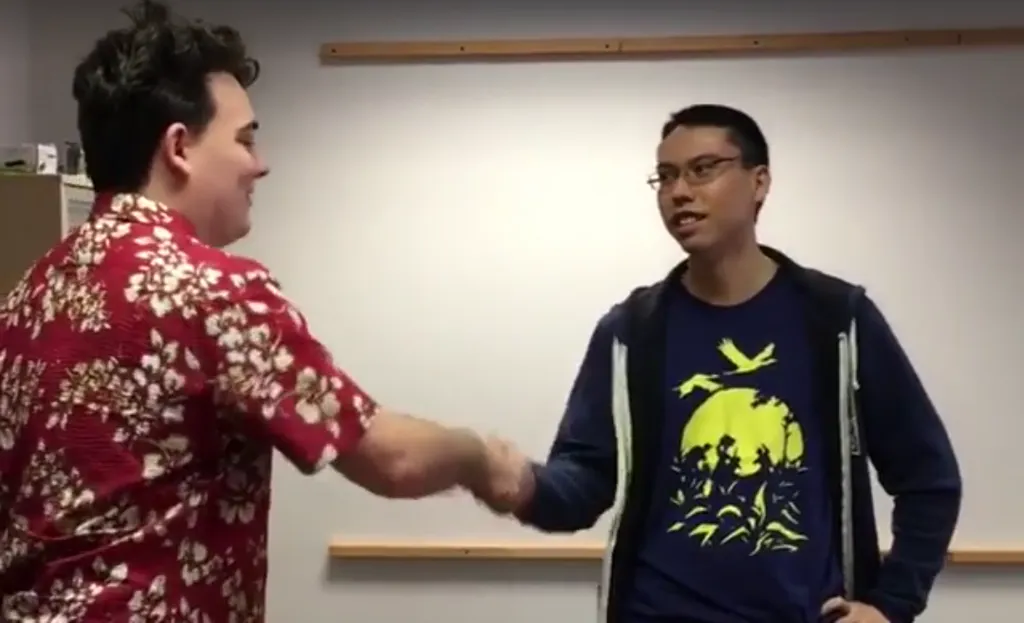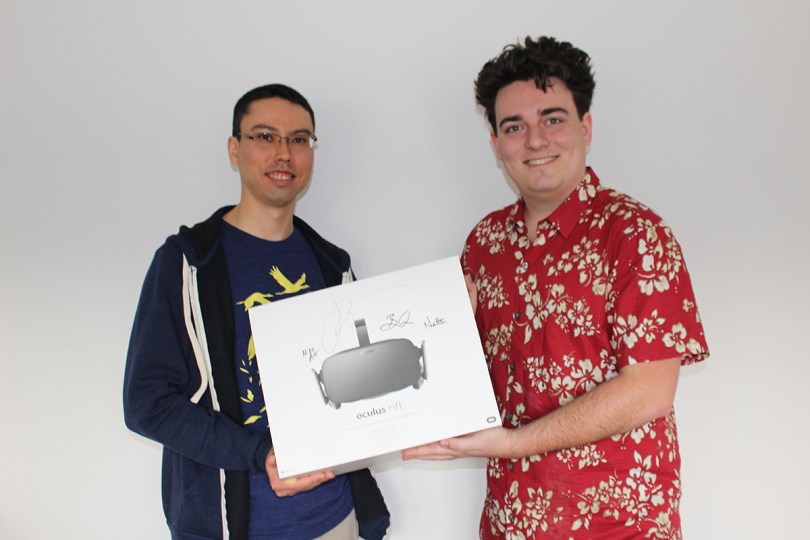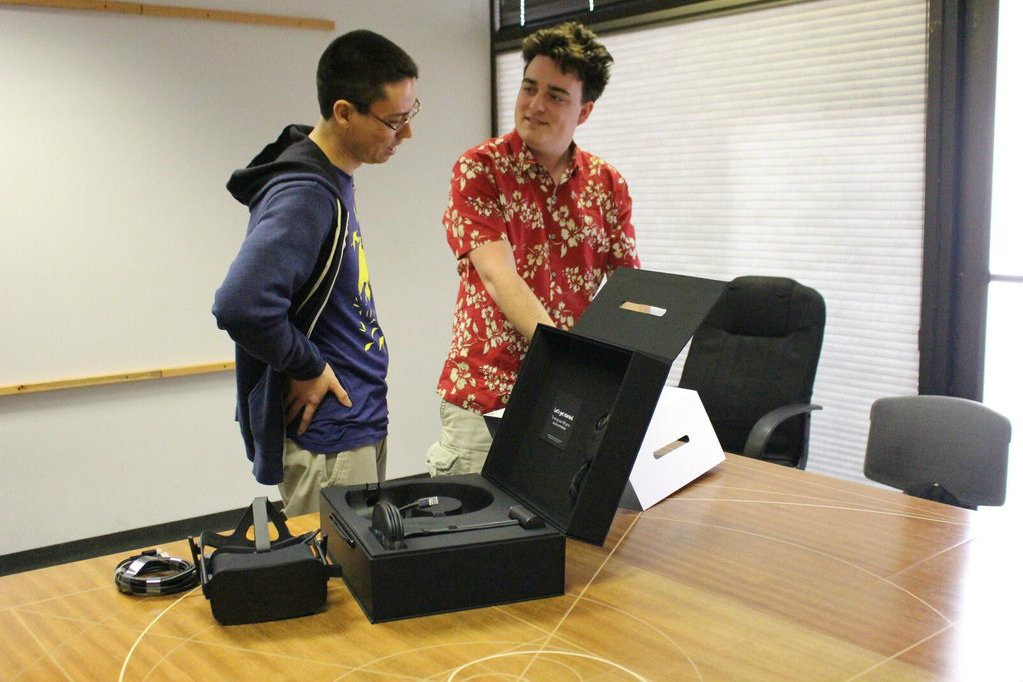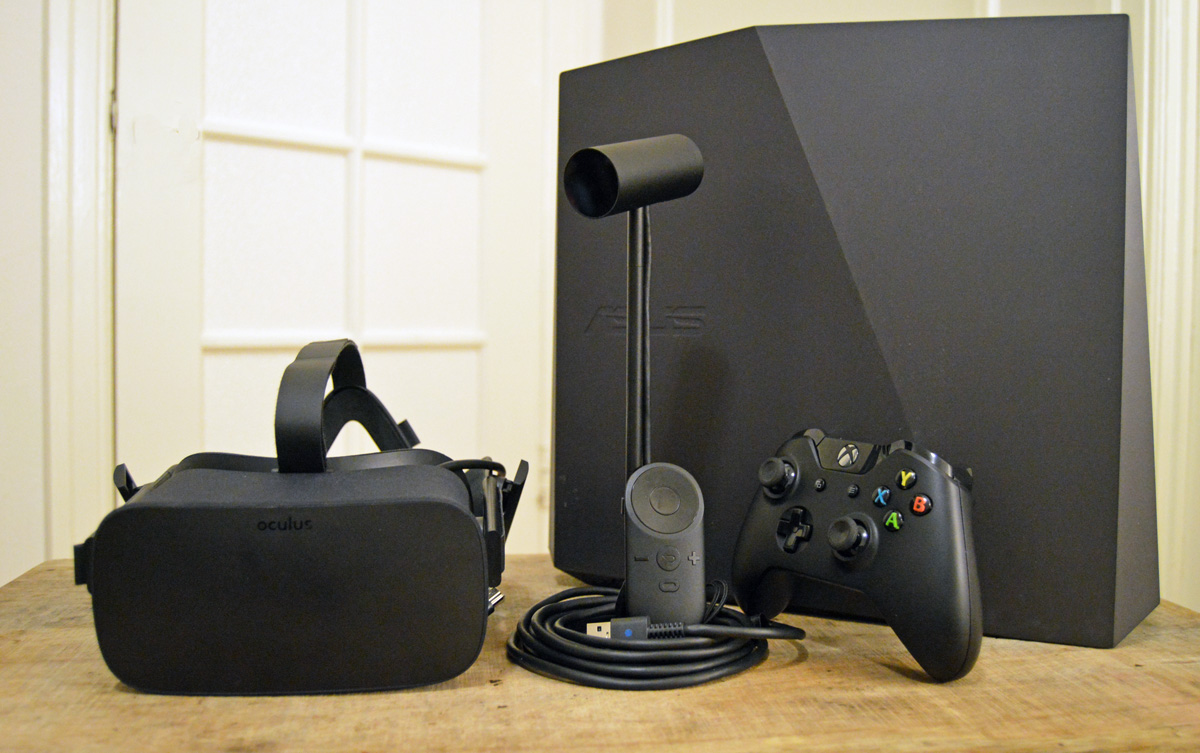It’s the morning of March 26, 2016 in Anchorage, Alaska, and it’s likely very cold. Palmer Luckey, however, is still in his trademark Hawaiian shirt, shorts, and flip flops as he sits in a car on a city street. He shows a smartphone camera the first ever Oculus Rift to reach the hands of a consumer, and then he opens the door and steps out into the Alaskan chill to deliver it by hand.
“This is incredible,” Luckey says as he passes the signed package over to one Ross Martin. “I’ve been working on this for so long and you’re the first person to actually get one. It’s kind of like me taking all this work and handing it off to you, so you have to make sure you have fun with it, or something.”
So, did he, or something?
Personally delivering the first Rift to Alaska!
Posted by Palmer Freeman Luckey on Saturday, 26 March 2016
To be honest, If I’d been given the first Rift two days ahead of official launch last March I’m not sure I’d have fought off the temptation to stick it up on eBay. Martin, however, avoided that temptation and seems to be a true believer in VR, calling it a “game-changer” for computing.
“Yes, I still have my Rift and usually play a few online games every week,” Martin tells me. “For the past few decades, PC gaming has been dominated by the trusty mouse and keyboard combination…now it’s 2017 and we have the ability to interact in virtual worlds with our hands. We’ve only begun to see how this will affect gaming and other fields.”
In the video Martin, who had barely slept the night before, doesn’t get the chance to actually boot up the Rift, but on the official day of launch, March 28, he did get to sneak in 30 minutes before heading to work.
“I had time to play a little Lucky’s Tale and try the Oculus Dreamdeck experiences, which blew me away,” he explains. “The Dreamdeck demos are still impressive, but it’s funny to see how far we’ve come in the past year with more interactive onboarding experiences like Oculus’ First Contact and Valve’s The Lab.”
VR has indeed come very far in the short year since the Rift’s launch. Martin’s package contained an Xbox One controller to play games with, but the Rift’s superior position-tracked controllers, Touch, wouldn’t be here for another nine months. As it turns out, that was when the Rift really launched, at least for Martin.
“To be honest, I had stopped using my Rift regularly until Touch was released,” he says, “but when I tried the new generation of Touch-enabled games, my excitement in VR was renewed.” In his words, the controllers “complete the package.”
And it shows; all of Martin’s favorite games for the Rift thus far use Touch. He name drops first-person shooters like Superhot, Arizona Sunshine, Onward, Bullets And More, and The Art of Fight as some of his favorite games as well as others like Windlands and Eleven: Table Tennis. He thinks developers have done a “great job” making experiences with only limited resources, referencing the largely indie-driven ecosystem we’ve seen so far. He compares it to the days when modders, not big studios, broke ground for multiplayer gaming with Action Quake 2 and, of course, Counter-Strike.
But what about the company that went to the effort of flying out to meet Martin? With lawsuits, delays, and even Luckey himself retreating into the shadows, Oculus has had a bumpy year at best. The Rift’s first customer, however, thinks Facebook’s VR division has done well overall.
“I can sympathize with the hurdles of building a VR ecosystem from the ground up,” he says. “It hasn’t all gone smoothly; tracking was quite buggy with the recent 1.11 release for several weeks, during which there was no way to rollback our drivers. Customers expect more.”
He’s also noticed the difficulties of sustaining online multiplayer games with such a small install base, revealing that he’s yet to successfully find someone to play against in Rift launch title, AirMech. But he’s hopeful recent moves are putting Rift on the right path: “Slashing the price of the headset and Touch controllers was huge,” he says. “A steady stream of games in the pipeline will keep gamers excited about the platform.”
The year hasn’t been without its own setbacks on Martin’s part either. “Palmer had also sent me a new desktop PC that arrived in the mail a few days later,” he explains. “A couple weeks after receiving the Rift, I was checking out the online VR chatroom, AltspaceVR, when my hand knocked over a glass of water on my desk straight into the open vent on the top of the new PC. The entire contents of the glass (at least half full) went straight into the machine.
“Imagine, if you will, talking to a fellow (me) in VR, then hearing an “OH N-” and seeing his avatar disappear. I powered off the computer at light-speed, then let it dry out for the rest of the day, thinking about what the internet was going to say when word got out that I had managed to brick a gifted brand new computer. Fortunately, the machine was fine so no one will ever know.”
Sorry, Ross.
Looking ahead, Martin is excited for VR’s second year. More than anything, he wants to see how the new interaction patterns that we’re only just getting to grips with on Touch develop over time. “Bullets and More recently released a silencer attachment – how cool it would it be to play a single-player spy game with a realistic weapon handling?” he asks. Discovering those unique kinds of interactions is what really excites him.
He also loves that smaller, indie developers are paving the way right now. “Small studios take risks where large publishers typically won’t,” he says. “I can’t wait to see what they come up with.”
Martin seems satisfied with Rift’s first year which, considering all of the hurdles the headset faced, is a small miracle in its own right.
Oh and, no, he doesn’t have a Vive.





























